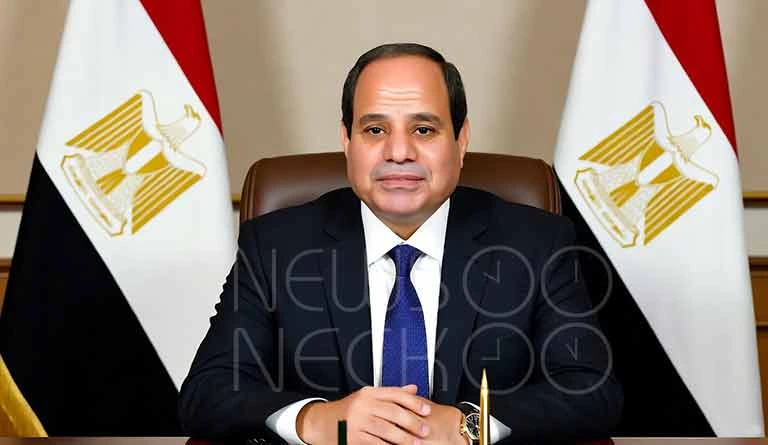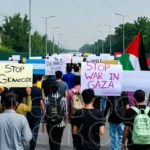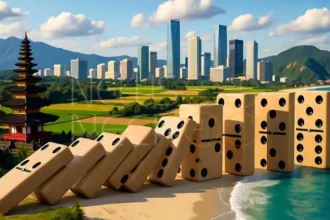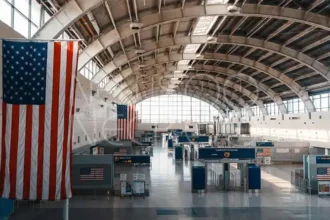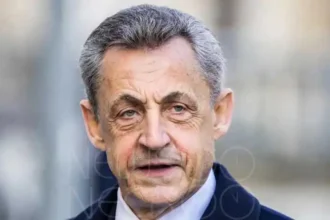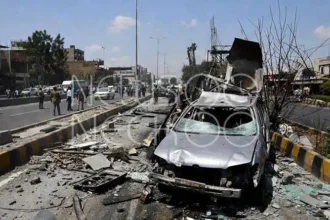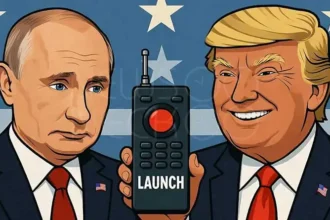A Fragile Dawn: In Egypt, a “New Middle East” is Being Born, But Key Players Are Missing.
The summit in Sharm el-Sheikh aims to turn a ceasefire into a lasting peace, yet the path is fraught with the ghosts of past failures and the absence of those who started the war.
In the serene, manicured resort of Sharm el-Sheikh, a city long branded a “City of Peace” for its history of hosting diplomatic talks, a powerful gathering is attempting to will a new reality into existence. On Monday, U.S. President Donald Trump and Egyptian President Abdel Fattah al-Sisi stood before leaders from more than 20 nations, co-chairing a summit with a goal as monumental as it is uncertain: to finalize an agreement ending the devastating two-year war in Gaza and to “usher in a new era of regional security and stability”.
The air in Egypt is thick with a fragile hope, buoyed by a ceasefire that has, for the first time in years, silenced the guns. This meeting is the diplomatic culmination of a deal that has already begun to change facts on the ground. Just hours before the summit began, Hamas completed the release of all 20 living Israeli captives it had held, and Israel began the process of freeing nearly 2,000 Palestinian prisoners. As emotional reunions unfolded in Israel and the West Bank, the world leaders in Sharm el-Sheikh were tasked with a far more complex mission: ensuring this exchange is not just a pause, but a true turning point.
The Attendees and the Empty Chairs
The guest list for the summit reads like a roll call of global power, a testament to the international stakes of this conflict.
Around the Table: The summit includes key European leaders like the UK’s Keir Starmer, France’s Emmanuel Macron, and Germany’s Friedrich Merz. Arab representation is strong, with Jordan’s King Abdullah II, the Emir of Qatar, and Bahrain’s King in attendance. Palestinian President Mahmoud Abbas was also present, received by President Sisi to endorse the peace vision. The presence of the UN Secretary-General and the head of the Arab League adds a layer of international legitimacy.
The Notable Absences: However, the empty chairs in the room speak volumes. Most consequentially, Israel will not be represented. A spokesperson for Prime Minister Benjamin Netanyahu stated the country would not send a representative, with Netanyahu himself declining his invitation, citing the Jewish holiday of Shemini Atzeret. Furthermore, Hamas, the other direct party to the conflict, is not involved, with a political bureau member stating the group “will not be involved” and continues to act through mediators. Completing the triad of absence, Iran also confirmed it would not attend, with its foreign minister citing an inability to engage with counterparts who “have attacked the Iranian People”.
The Daunting Road Ahead
With the initial prisoner swap underway, the summit’s real work is to grapple with the next, more complicated phases of Trump’s 20-point peace plan. These are the issues that have shattered peace efforts for decades.
The table below outlines the critical, unresolved challenges that the summit must address:
| Challenge | The Sticking Point |
|---|---|
| Gaza’s Future Governance | The role of the Palestinian Authority (PA) is contested. Trump’s plan leaves this possibility open, but Netanyahu has firmly rejected the PA’s involvement. |
| The Fate of Hamas | A central pillar of the plan is the disarmament of Hamas. However, it remains unconfirmed whether the group has agreed to this, and its political future is a major point of contention. |
| Israeli Withdrawal | The full withdrawal of Israeli forces from Gaza is a key part of the next phase, but details and timelines are yet to be finalized. |
| Reconstruction & Aid | With 85% of some areas destroyed and famine stalking the population, rebuilding Gaza and ensuring a surge of humanitarian aid is a monumental task that hinges on Israel opening crossings. |
You Might Like it: A fragile peace finds its moment in the Middle East War
A Moment of Cautious Hope
Despite the formidable obstacles, the summit represents the most significant chance for peace in years. The presence of so many world leaders is a powerful signal of international consensus that the war must end. The ceasefire, though fragile, is holding. And the return of hostages and prisoners has provided a burst of human joy that fuels the diplomatic effort.
As leaders deliberate inside the conference halls, the people of the region are left to hope that the promises made in Sharm el-Sheikh will be more durable than those of the past. The war may be declared over, but the work of building a peace that can survive the deep-seated grievances and political rivalries of the Middle East has only just begun. The “dawn of a new Middle East” has been announced, but the world is watching to see if it will be swallowed by the shadows of old conflicts.
Author: Yasir Khan
Date: 13 Oct, 2025
For More Updates, Visit Newsneck


